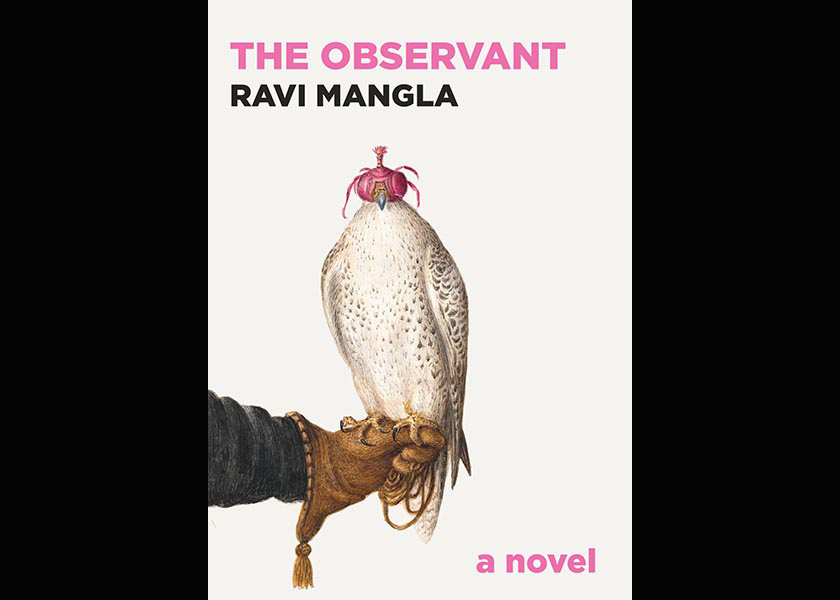The Observant ~ By Ravi Mangla
(Spuyten Duyvil, New York, 2022, ISBN #978-1-956005-58-5)
Review by John Feffer (Spring 2023)

In 1976, North Korean agents abducted the famous South Korean director Sang-ok Shin from Hong Kong and brought him to Pyongyang. After trying twice to escape from his luxurious accommodations, he was imprisoned for three years. Finally, North Korean leader Jong Il Kim let the filmmaker out of prison and reunited him with his former wife, Eun-hee Choi, who had also been abducted by North Korean agents in Hong Kong.
The two prominent South Koreans were still forced to live and work in North Korea, and across several years, they produced a half-dozen films that transformed the North Korean film industry. Indeed, Kim, a film aficionado, had ordered the abductions for just this reason. Ten years after Shin’s abduction, in 1986, on a scouting trip to Vienna, the couple managed to slip away from their handlers and escaped to the U.S. embassy. They were repatriated to South Korea.
This surrealistic story of a despot and a director has been recounted in several forms, most comprehensively in Paul Fischer’s 2015 book A Kim Jong-Il Production. As a true story that reads like a novel, it’s surprising that it has not inspired very much in the way of fiction.
Ravi Mangla is a novelist and a fan of Shin’s films. His latest novel, The Observant, transposes the tale of the abducted South Koreans to an unnamed Middle Eastern country that combines elements of Bahrain, Iran, and Syria. This benighted country is ruled by Mohammed Mohadessi, a dispassionate autocrat who styles himself as a father leading (and often disciplining) his unruly children.
Getting on in years, Mohadessi is disappointed with his immediate family and his extended family of citizens. His wife has become increasingly estranged, students and dissidents are ramping up their protests, and the outside world treats him as a human-rights-abusing tyrant. Film is a refuge from all of this estrangement. Like Kim, Mohadessi is a movie buff, with his own luxurious cinema and collection of foreign films, many of which would never be shown in public in his country.
One day, American documentary filmmaker Vasant Rai shows up in the country to investigate the growing protest movement. Rai is not famous, though he is known for creating a well-known documentary of the MOVE bombing in Philadelphia. Nor is Rai particularly cautious. Although he is operating in a dictatorial country, he does not do much to cover his tracks. In due course, a couple of goons grab him from his taxi as he heads to the airport and deposit him in a jail cell.
After a few interrogations and a modicum of torture, Rai is brought before the despot to listen to his offer.
“I wish for you to make a film about me and my work,” Mohadessi tells him. “Our country is, in some ways, set apart from the global community. It’s important that they see what we are accomplishing here.” Rai is not thrilled by the offer. But what choice does he have?
“Son, you always have a choice,” the dictator assures him. “However, different choices bear different outcomes. I say this not to perturb you. But if you are unable to perform this favor for me, then what use do I possibly have for you?”
Rai is no stranger to this question. He asks himself — as a filmmaker, as an American, as a perpetual observer — of what use he might be. Once, seeing the police harass a fellow filmmaker of color, he and a friend intervened, then all three are bundled off to jail. In the holding cell, the Black filmmaker pulls him aside to say, “That was some reckless shit. He was only going to ticket me. The next time you want to play Superman, go to a comic book convention.”
But what is Rai’s trip to this oppressed country if not a reckless intervention that puts his dissident interviewees and ultimately himself at risk? Not even his American passport confers Superman status as the filmmaker is drawn more deeply into the affairs of a despot.
Although inspired by the case of the South Korean filmmaker Shin, The Observant does not follow the same story line. Rai has not been abducted from a foreign country. He has not been imported to improve the filmmaking standards of a stagnant industry. He is operating in a country with a robust protest sector. He has no ethnic ties to Mohadessi or his country.
But the central dynamic remains: A dictator and his captive documentarian. Like the South Korean filmmaker, Rai can’t help but feel compelled to do a good job. He is a trained observer with a sharp eye for detail. Indeed, he discovers that he is not much different from the trained falcon that Mohadessi keeps as a pet, which can fly, only when given permission, on leashes of variable lengths. Even the filmmaking freedom that he enjoys in the U.S. is circumscribed by the constant need for funding. Rai can fly, but only with the illusion of liberty.
Told in a series of short passages that resemble the scenes of a film, The Observant is a taut, absorbing read that explores the limits of artistic expression in both free and unfree societies. It asks tough questions about oppression and the challenges of intervention. With its spare prose and mordant asides, The Observant provides no easy answers.


